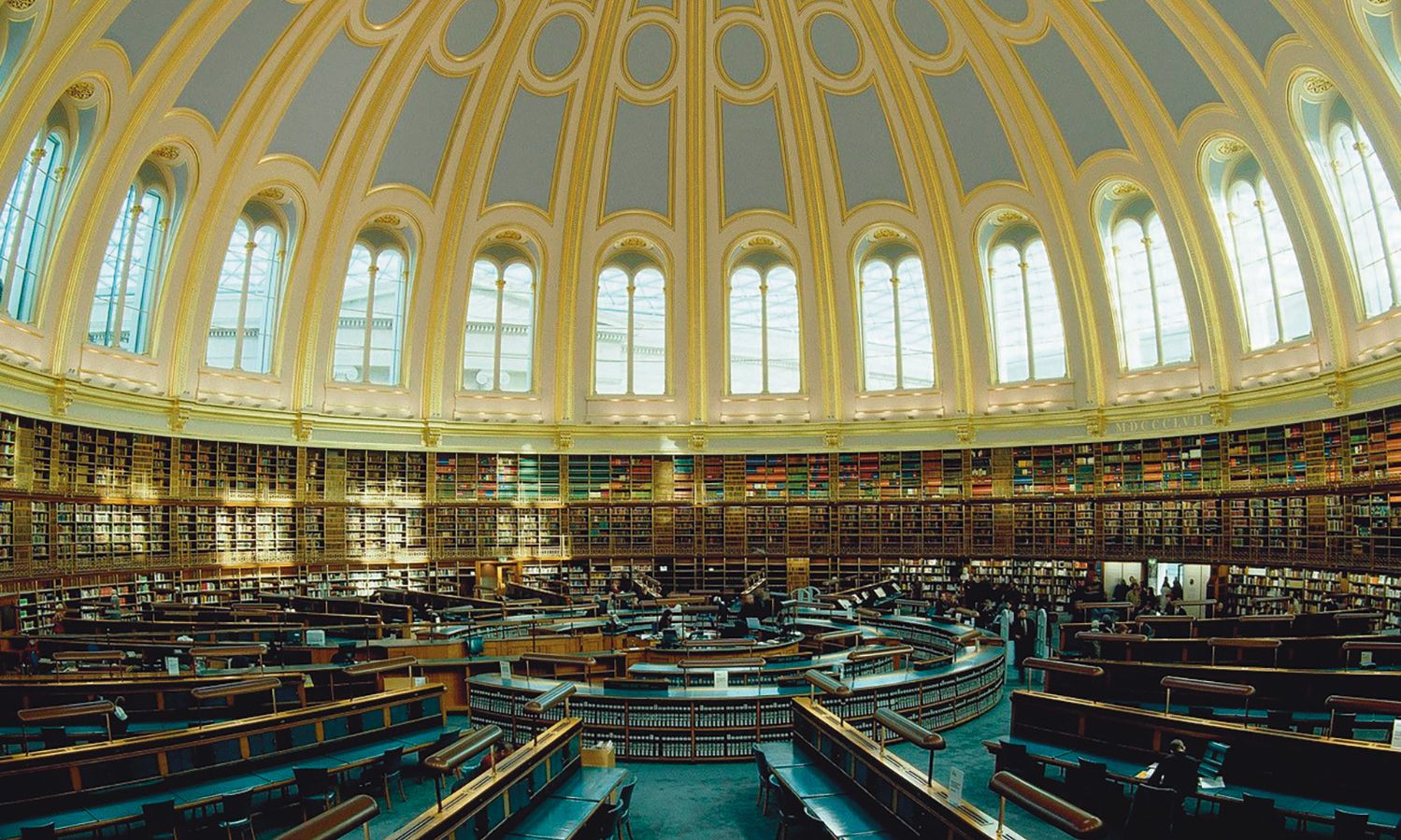The Reading Room in happier times, in the early 2000s, not long after the British Library moved to its new purpose-built home in Kings Cross. For now, the space is used for storage and handing of the museum’s archives The Trustees of the British Museum
This month marks ten years since the British Museum’s Round Reading Room was closed to visitors. One of the most awe-inspiring architectural spaces in the capital, it now remains a distant memory for Londoners.
George Osborne, the museum’s chairman, said last November that the closure is “not acceptable”. Since then, weekly 20-minute tours have been introduced, but with just 20 people per tour. Five years ago Hartwig Fischer, the museum’s former director, told The Art Newspaper that the reading room “needs to be an integral part of the museum”, adding: “It should be a space where you can understand in a condensed way what this museum is about.”
Progress in reopening the Reading Room has been painfully slow—in the meantime it is being used as a storage and handling facility for the museum’s archives. A few original desks have been temporarily removed and much of the floor is now covered with archival boxes, leaving a dispiriting impression of this grand space.
Designed by Sydney Smirke and opened in 1857, the enormous, 43m-diameter room was inspired by the Pantheon temple in Rome. The room served readers of the British Museum Library (later the British Library) until it moved in 1997. After 2007 a temporary platform was built above the desks, providing a venue for exhibitions until the museum’s new extension was opened. But since September 2013 the room has been closed.
The challenge is to provide space for displays, since the dense configuration of original desks needs to be retained in what is a listed building. Reopening is still years away: it will require planning permission, fundraising, building work and the creation of a display. Hopefully, it will be worth the wait.

